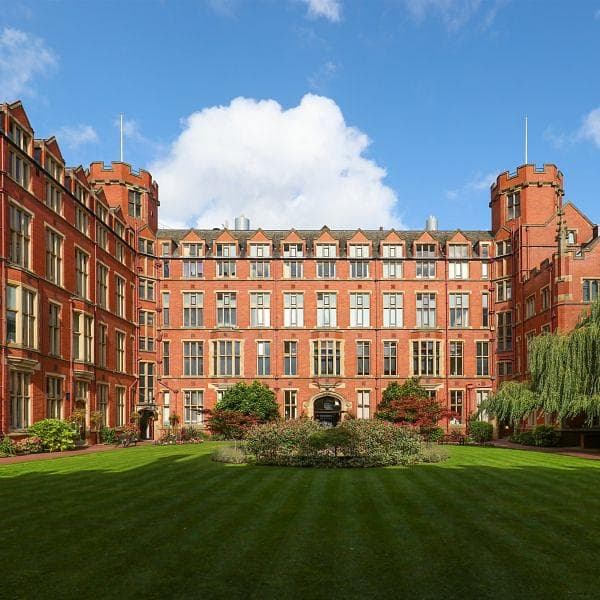A selection of modules are available each year - some examples are below. There may be changes before you start your course.
Choose a year to see modules for a level of study:
Phase 1
- September Year 1 to June Year 1
- Introductory Clinical Competency
- Introduction to Medical Studies and Medical Sciences
- Introductory clinical competencies
- Systems based learning and teaching (Cardiovascular, Respiratory, Gastrointestinal and Liver, Musculo-skeletal, Skin, Nervous, Genitourinary, Endocrine, Reproductive, Haematology, Immunology)
- Integrated Clinical Demonstrations
- Multi Professional Experience (a 2-week teaching block focusing on clinical skills development)
- Early Years General Practice Placement (10 half-days through year 1)
- Community Attachment Scheme
- Public Health and Population Health Science
- Medical Ethics
- Personal and Professional Development
- Student Selected Components (SSCs)
The structure of Phase 1 follows the General Medical Council's (GMC) Guidelines and is largely 'systems-based'. Information is presented in a series of modules which cover the basic systems of the body and also involves Public Health and Population Health Science, Medical Ethics, Professionalism and Patient Safety and Student Selected Components.
Much of the teaching takes place in the Medical School which is sited next to the Royal Hallamshire Hospital. A significant part of Phase 1 involves working outside the main campus, for example at the clinical skills units at the Northern General Hospital and the Royal Hallamshire Hospital, on the wards of nearby hospitals or within a community setting including general practice and some social service locations.
Phase 2
- September Year 2 to December Year 3
- Basic clinical competencies
- Research Project
- Early Years General Practice Placement
- Clinical Attachments
- SSCs
- Clinical Medical Sciences
- Clinical Skills
Phase 2a of the course lasts for one academic year and starts with a six-week research project. Students are attached to researchers within the Faculty of Medicine, Dentistry and Health and have an opportunity to develop their research skills.
Medical Sciences feature strongly in Phase 2a. Your knowledge and understanding will be developed through both lectures and clinical experience in ten half-day general practice placements. You will build on the knowledge that you gained in Phase 1 by learning about the clinical presentation of disease (symptoms and signs), pathology, microbiology, immunology, the investigations that are used in diagnosis and the way that specific diseases are treated (pharmacology and therapeutics).
Medical sciences are assessed in written examinations (multiple choice and clinically-related scenario short answer questions) at the end of Phase 2a.
In Phase 2a, you will also receive training in a large number of procedural clinical skills in simulation (e.g. obtaining a 'blood' sample from a manikin arm). Your ability to perform these procedures safely will be assessed in simulation during Phase 2a, so that you are ready to perform them under supervision in clinical practice for the remainder of the course.
Phase 3
- January Year 3 to August Year 4
- Extended clinical competencies
- Clinical Team Attachments
- Child Health
- Women's Health
- Mental Health
- SSCs (including Community-based and an Elective)
- Medical Sciences
- Acute Clinical Care
- Continuing Clinical Care
- Community and Public Health
- Specialty Clinical Attachments
- Further SSCs including Medical Audit
Phase 3 lasts just under two years and is clinically based. It is a period of study and clinical experience taking students into both primary and secondary care of the patient with an emphasis on 'hands-on' medicine.
The primary care element involves community placements centred on General Practice.
The secondary care of patients covers mainly hospital work in sub-speciality subjects including child health (Paediatrics), women's health (Obstetrics and Gynaecology), mental health (Psychiatry) and General Practice. Students rotate in small groups through these disciplines and receive various forms of back up including small group work, seminars, tutorials and lectures.
Phase 4
- Final preparation for clinical practice
- Final preparation for becoming a Junior Doctor
- LICP2 and LICP3
- Student assistantship
The final year of the course will provide you with the opportunity to prepare for clinical practice after graduation. The year begins with a series of lectures that will allow you to consolidate and further develop your knowledge over a wide area of clinical medicine.
You will then undertake the two longitudinal integrated placements (LICP2 and LICP3) which will be in a different hospital and clinical area from LICP1. The structure of LICP2 will be similar to LICP1 (attached to a clinical team, defined role and responsibilities, additional experiences in other departments and regular classes) but will reflect your increased experience and competence. After the Christmas break, you will continue to develop your competence in LICP3 in another hospital and clinical area.
Most graduates continue their medical training in postgraduate foundation programmes. The student assistantship will provide you with six weeks of experience in the post you will take up in August (this can only be guaranteed for students who will be staying in the local area).

